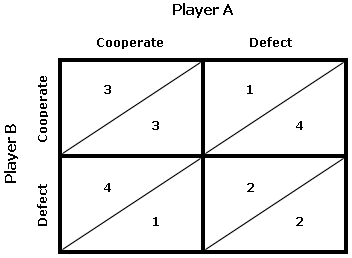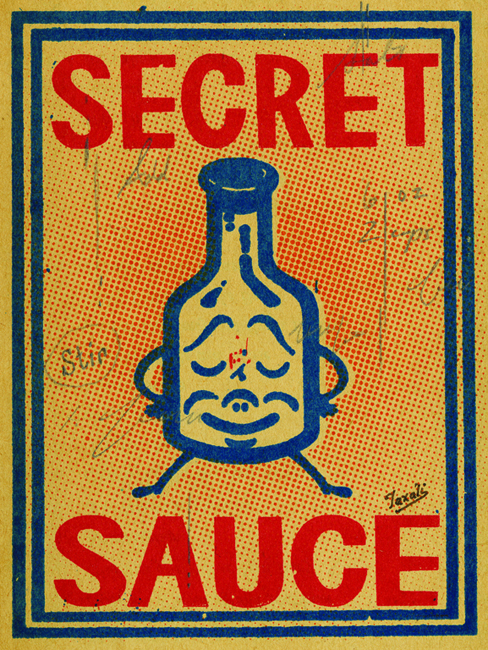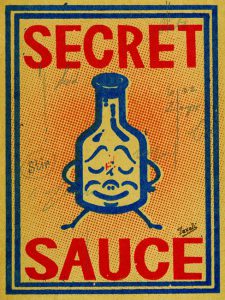
by Alex Patton | Sep 17, 2013 | Political Consulting, Political Media, Political Research
I must admit, I think I may be maturing or mellowing in my age.
The past year/18 months has been a period of intense study in an attempt to answer the question “How do people REALLY make decisions, especially political decisions?”
This has lead to a more intense reading period than I can remember even while in college. It has lead to books and scientific papers on behavior decision making theory, statistics, Bayes statistics, cognitive thinking, irrationality, biases, political branding, story telling, critical thinking tools, Neuromarketing and philosophy.
It has been a true meta-experience, and “Thinking about thinking” has lead to an incredible personal and professional journey. 
Distilled, here is what I am learning:
Our brains are complex, incredible and a big fat gigantic liar sitting atop our shoulders.
Essentially a synthesis of all the literature I have read is that we bump along life taking shortcuts that allow us to make sense of our world and unless we expend tremendous effort and are aware of our mental short cuts, we don’t do much heavy thinking. Even when we think that we are making a major decision, we are often making most decisions at a sub-conscience, affective, irrational level and then “confabulate” (my absolute new favorite word) a story in order to rationalize our decisions.
In fact, we have to force ourselves to do heavy thinking and even THEN, our brains still try and cheat and take short cuts.
For a very long time, I have been blissfully operating under my very own set of biases: personal and professional. Combine these biases and shortcuts with a healthy dose of ‘expertise’ and you had a person that did not deal well with ‘amateurs’ in the political field.
I was easily frustrated, dismissive, and impatient with others when it came to political and campaigning suggestions.
Then I spent a 18 months being humbled by science when you suddenly realize that the splinter in some amateur’s eye is completely blinding you to the log in your own eye.
The Change
I am attempting to personally commit myself to improving my decision making process and improving the way that I handle dissenting views proffered by others.
When you start treating your brain as benevolent well meaning liar, you approach things differently.
In all of the past 20 years, one question is helping me more than anything. The question? 
“What if THEY are RIGHT?”
This simple question forces me to break my thinking patterns, at least some of them.
By not dismissing someone who does not agree with you out of hand, you are entering into a new way of thinking about an issue.
Quick take inventory of your own biases, think about your decision process:
- Did you satisfy?
- Did you seek only confirmation? Did you only goto your favorite website and find the first article that agreed with you and send it out as definitive proof?
- Did you even consider a differing opinion?
- Did you consider that you could be wrong?
- What is the probability that you are wrong?
- What are your critical underlying assumptions?
The key is to slow the decision making process down.
Before rejecting the person’s thought, idea, or comment immediately out of hand, I quickly ask, “What if THEY are right?”
How did they come to their conclusion(s), what was their process, what is their information, what is their reasoning? All questions that pop into your head when you ask “What if they are right?”
Even with this effort, I still forget to ask it sometimes hence the hanging of the post its around my workspace.
I am attempting to use this with my clients, family, my friends, and my political opponents.
Honestly, it is a struggle, because it is hard and takes more mental energy than one realizes.
But, I am starting to see the rewards. It is making me more patient (a little) and I think it is helping me make better decisions.
I find myself less interested in being right and more interested in making the best decision possible, and I think this alone will serve my clients, my family and my friends better.
I still may not agree with the person, in fact considering your side of the issue may make me further entrenched in my position but that is a complete other blog post.
For now, let’s just say I am making the effort.
Final thought on Thinking about Thinking
Please, don’t take my word about any of this; after all, my brain could be lying to me. He’s kinda of a rascal like that.

by Alex Patton | Sep 8, 2013 | Political Consulting, Political Research
British game show contestant shows you everything you need to know about political strategy in 6 minutes.
Takes EDIT: a variation of the classic prisoner’s dilemma and “solves” it by thinking forward and reasoning backwards.


by Alex Patton | Aug 27, 2013 | Political Research
Ever read a line and it hits you as a WOW! moment? You know a paragraph that when you read it clarifies something so well that it is embarrassing that you haven’t connected the dots on your own?
I had one of those moments this past week when reading How Voters Decide. It is a good read that takes Behavior Decision Theory and applies it to politics in an attempt to look inside the black box of how people actually make a political/voting decision.
However, there was one paragraph that made me take notice. I am not sure why this point struck me as so profound, but it did.
Eureka!
“Of course, one can make a judgement even when no choice is involved. The evaluation of an incumbent between elections represents on such “choiceness” judgements in politics.” (Lau & Redlawsk 2006)
“Evaluation is about making a judgement on some dimension of interest about an object regardless of how many objects are being evaluated, while choice is inherently about selecting from a set of alternatives.” (Lau & Redlawsk 2006)
“Finally it becomes quite clear that global evaluations – at least in elections – do not have to translate directly to a vote. Strategic voting, for example, might lead to a choice of a candidate with a lower evaluation if the voter believes that candidate has a better chance of winning, as might a vote made for other external reasons, such as based on group affiliation or please someone else.” (Lau & Redlawsk 2006)
“Choosing one alternative from a set can invoke different psychological processes than judging alternatives, which are presumable evaluated one at a time.” (Johnson & Russo 1988)
The separation and distinguishing of choice and evaluation is a major realignment of a framework for me.
When you separate out the two functions, then you can develop distinct communication strategies to affect each process. Once you place these two processes independent of each other, differing communication strategies start to percolate.
Evaluation happens between elections….choice happens at elections. Off season communications versus campaign communications.
The processes of evaluation & judgement require different types and amounts of information. Choice requires less information.
You can also see the ramifications of voters voting for some other candidate other than the one they evaluate the highest.
Finally, when you understand this distinction, you understand that the rational voter model doesn’t exist and you better tailor your communications properly to account for your audience and the communication process being employed.
I know, maybe not Earth-shattering, but still a significant framework structure to help organize your communication programs.

by Alex Patton | Aug 20, 2013 | Political Media, Political Research

Rhetorical Design in Speech Making
Welcome to ‘science time’ with Ozean Media (Yes, it normally it is Science Friday, but I have recently become aware of NPR’s Science Friday so we must re-brand!)
While we re-brand, I came across some literature that I found interesting. We are embarking on a messaging discovery phase for a client, and I began to wonder what studies are out there on structure of messaging and the reception of those messages .
Basically, does rhetoric influence reception of the message?
This question lead me to Max Atkinson‘s research on the 7 rhetorical devices and the applause they generate. This lead me to a paper by John Heritage and David Greatbatch from the University of Warwick who used Atkinson’s research. This paper reviews Atkinson’s research and applies it to political speeches made in Britain.
It is an interesting read, and you can download the entire paper at the end of this post; however, in summary:
- 70% of the applause produced is associated with 7 rhetorical constructions.
- The relationship between the rhetoric and response is independent of party, status of speaker, and the popularity of the message.
- Performance Factors (the speaker’s actions) are found to influence the likelihood of generating a response strongly.
What the findings are showing is that audience responses to political speeches are influenced by the verbal structuring of the statements that are being made. Statements that use 1 of the 7 rhetorical devices were “between two and eight times as likely to be applauded as those who did not.”
In fact, the verbal structure had more to do with the applause and response generated than did the actual argument.
The 7 Rhetorical Devices to generate applause
1. Contrast – This is the Daddy Mack of devices, the mother sauce if you will. If you take away nothing else from this post, remember CONTRAST / ANTITHESIS. It has been used since the Greeks for a darn good reason: it works. Contrast works so well because the core assertion is said twice – in the negative and the positive – and the audience knows exactly when to react.
2. List, in three parts – This is the Daddy Mack, Jr. of devices. In the use of item1, item2, and item3, the “AND” signals to the audience the conclusion of the point and primes them for applause.
3. Puzzle-Solution – The speaker establishes a puzzle, and then provides the answer with the answer being the core message.
4. Headline-Punchline – Similar to Puzzle Solution, but more simple and less potential for elaboration (think soundbite).
5. Combination – combining all the devices above, with most combinations using contrast together with another device.
6. Position Taking – describes a state of affairs that the speaker is expected to take a strong stance with the description containing little to no overt evaluation. At the end, the speaker unequivocally praises or condemns the state of affairs.
7. Pursuit – When all fails, if an audience fails to respond, speakers may actively pursue applause by simply priming the message and then restating.
The Results of the Study of Rhetoric

As you can clearly see, contrast by far is the greatest deliver of applause – the mother sauce.
In summary, the study states about the table above:
Taken as a whole, table 5 provides impressive general support for the hypothesis that political messages that are packaged in rhetorical formats embodying emphasis and projectability are more likely to be applauded than messages that are not so packaged. The distribution of applause in association with the various formats described is generally stable regardless of political party and type of speaker. This conclusion is qualified only by a slight tendency for more practiced political speakers to gain a higher proportion of their applause from rhetorical devices than run-of-the-mill conference participants. These results suggest that there is a fundamental tendency for audiences to respond to political statements that employ the rhetorical devices and that experienced political speakers use them more often, or more appositely, or deliver them more effectively.
Additional Finding
As you may guess, the politician’s skill at delivering the speech greatly affects the outcome.
Something as simple as eye contact was greatly noticed. When a line failed to generate applause, the researchers were “struck by the repeated failure of many speaker to sustain eye contact with the audience when making significant points.”
Tucked into the study is the following conclusion: “while they (the audience) may have been able to recognize that a significant point was being made, were generally reluctant to respond to it in the absence of any additional signal from the speaker that the point was of real importance.”
Speakers can do this by the stress they place on their points, and speakers generate this defined stress in 5 main ways:
- gazing at the audience at or near the completion point of the message
- delivering the point more loudly than the surrounding speech passages
- delivering the point with great pitch or stress variation
- delivering the point with marked speeding up, slowing down, or some other rhythmic variation
- delivering the point accompanied by the use of gestures
Conclusion
While every politician or aspiring politician may not be able to hire a full time speechwriter, there is no excuse NOT to learn the basics.

It is clear, The mere way one structures & delivers an argument has a huge impact on the effectiveness of an argument.
Any politician would improve their stature not with long, boring litanies of facts, but rather with an understanding of how to construct an argument using these 7 rhetorical devices. Then one must practice, practice, practice delivering them.
OR
As my Mamma said, “Son, it is not what you say, but how you say it!”
Read the entire study: Generating Applause: A Study of Rhetoric and Response at Party Political Conferences

by Alex Patton | Jul 16, 2013 | Political Consulting, Political Media, Political Research
I am asked all the time, what makes a good candidate?
While we all know a great candidate can get beat when the political environment and/or district are not in his/her favor or at least even, we will set this aside.
We will just look at the simple question, “What makes a good/great candidate?”

The Secret Sauce
The ability to craft and tell a coherent story that emotionally connects with voters. There it is – that is the secret sauce.
While all political consultants are all excited about the latest scientific studies, big data, predictive analysis, and changes in media consumption, it still comes back to the basic building block of good ol’ fashion storytelling.
It begins with the Story
Before we write campaign plans, strategies, tactics, we need the story to tell.
When we first meet with a candidate, we ask them the basic question: “Please, why you are running?”
If the candidate tells me that they are going to run an “issue-orientated” campaign and proceeds to rattle off 10 issues with solutions and facts, we know that we have a ton of work to do or that we should focus on other candidates.
What we really want to hear is: “Thanks for asking Alex, you handsome devil, please allow me to tell you a story…..”
I dream to hear a candidate tell a story connecting with the values and emotions of most of the voters AND contains BOTH protagonists and antagonists.
 We need a story that defines who they are and what they stand for, and a critical element of the story is that it will be rejected by 20-30% of the voters.
We need a story that defines who they are and what they stand for, and a critical element of the story is that it will be rejected by 20-30% of the voters.
If they tell us a story that attempts to attract 100% of the vote and never offends anyone, we want out or a really weak field. Without conflict, there is no story! Yes, the tone is up for discussion, but we must have conflict.
The dream candidate? The dream candidate can make the difficult transition of constructing the story without themselves as the central character. However, in the beginning, we will just take a story, any story.
Why? This is not because I think it works.
It is science.
The Science of Story
Our brains need stories. In fact, our brains actively search for stories, and when our brains have difficulty, our brains will just make stuff up to fill in the gaps.
It appears from all the research, our feeble brains must have stories to construct neat, little packages so that we can retain & understand. It is why we have listened to and told stories since we were children, it is why Hollywood exists.
If I could, I would require the following reading list for candidates to include but not limited to:
- McKee, Robert. Story: Substance, Structure, Style, and the Principles of Screenwriting. HarperCollins Publishers, 1997.
- Mark, Margaret, and Carol S. Pearson. The Hero and the Outlaw: Building Extraordinary Brands Through the Power of Archetypes. New York: McGraw-Hill, 2001.
- Sachs, Jonah (2012-06-19). Winning the Story Wars: Why Those Who Tell (and Live) the Best Stories Will Rule the Future Harvard Business Review Press.
Summary of the Importance of Political Stories
I concede, it is probably asking too much to have candidates – especially first time candidates – approach campaigns with fully crafted stories.
However, instead of jumping right to numbers and strategies, political consultants need to spend more time upfront convincing our clients the importance of storytelling and then working with them developing their story.

by Alex Patton | Jul 12, 2013 | Political Consulting, Political Research
Science Friday: Why negative campaigning works! An Overview
As political consultants, we catch TONS of blow-back for negative campaigning. 
However, when we are asked why we engage in negative campaigning, we don’t do ourselves any favors by flippant remarks such as “Well, negative campaigning just works!”
As professionals, we all know it just works. We know it intuitively, we have been taught it by mentors’ rules of thumb, and we have seen the numbers tank 20 points when an explosive direct mail piece / issue hits. We have the war stories.
We also know that we can pump out positive, fluff bio pieces by the truckloads and not interest the press one darn bit. However, we send out one, small universe hit piece and the press goes NUTS!
However, let’s not just blame the press or just retort “It just works”.
Instead, let’s take a moment to explore the real culprit : the human mind.
Yep, it’s your brains’ fault that negative campaigning works.
It is your brain’s fault!
Principle #1 : Bad Interactions have stronger, more pervasive, and longer lasting effects.
In a 2001 study by Roy Baumeister, Ellen Bratslavsky and Catrin Finkenauer “Bad is Stronger Than Good”, the results are clear! In their conclusion, “It appears to be a basic, pervasive fact of psychology that bad is stronger than good.”
The study performs a comprehensive review of different literature of “bad versus good” It reviews everything from evolution to psychology to communication to relationships to emotions and moods to rewards and punishment to how we process information.
In fact, when speaking of processing information:
“Thus bad information does receive more thorough information processing than good information. Bad information is more likely to seize attention, and it receives more conscious processing as well.”
It does not matter where you look, the human mind is wired – “Bad interactions have stronger, more pervasive, and longer lasting effects.” PERIOD!
Read the complete study: Bad is Stonger Than Good
Principle #2: Loss Aversion – Losses loom larger than gains.
Human brains are wired to be loss averse, by a large margin. When faced with potential losses, our brains become totally irrational and develop a blind spot … by a large spread. 
“The “loss aversion ratio” has been estimated in several experiments and is usually in the range of 1.5 to 2.5.” Kahneman, Daniel (2011-10-25). Thinking, Fast and Slow (p. 284).
Essentially, the human responses to loss is stronger than the response to corresponding gains. This is commonly referred to as prospect theory, and this concept changeds Economics and how we think of human decision making.
Further suggested reading: Thinking Fast and Slow by Daniel Kahneman (it really is an almost must read)
Conclusion
In summary, our brains are wired to remember the bad. It appears to an evolution trait developed so that we may live: remember the bad tiger and survive the threat – OR – remember the good smelling flower and get eaten by the tiger.
In summary, we also know that if we can make you fearful of losing something, we can awaken emotions in your brain that you didn’t know you had.
In this cluttered, busy and fast moving world, is it any wonder of what breaks through?
We can motivate your brain with bad, scary information, and it is cheaper to do so.
However, it ain’t political consultants’ fault! It is your brain’s fault!
The next time your neighbor or the press goes crazy about a negative piece do not reply “It just works”.
Instead tell them why it works:
“It’s your brain’s fault – your brain remembers & thinks about bad stuff more and your brain is loss averse by a 2:1 margin. Change your brain, and I will change my campaign tactics.”
















